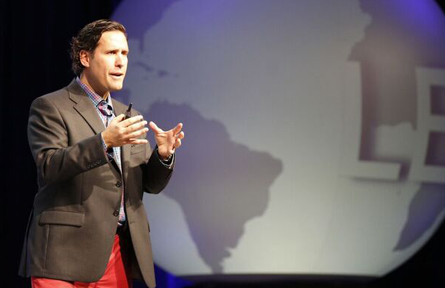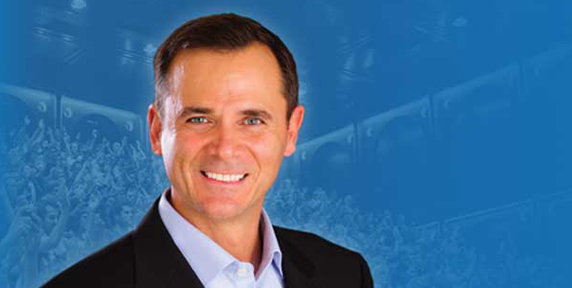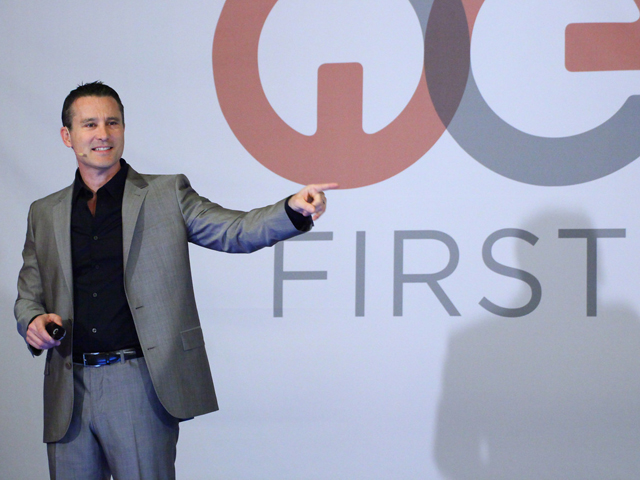
Learn What Customers & Employees Crave Most, with Gregg Lederman
| The number one challenge I see over and over again is the simple act of communicating expectations for “how” an organization lives its brand or lives its core values. | |
| |
 | What are some detrimental managerial practices you commonly see and how do they effect the workplace? |
 | Executives, managers, and supervisors struggle to create an environment where employees can become more ENGAGED. Sure they tend to clearly explain the WHO, WHAT, and WHY. But they struggle to communicate the HOW. Most organizations know “who they are,” “what they do/produce/deliver,” and “why” it is important to their customers and the world around them.
However, the number one challenge I see over and over again is the simple act of communicating expectations for “how” an organization lives its brand or lives its core values. This is the behavioral aspect of performing the experience or, as we say at Brand Integrity, living your brand. This lack of basic communication leads to a lack of accountability among the workforce, which inevitably translates into an inconsistent customer experience. |
 | Your website says to be more successful, organizations need to give employees “what they crave.” What do employees crave? |
 | There is seven decades of research that speaks to three drivers of motivation for people at work. Going all the way back to the 1940s, researchers and scientists have proven over and over that there are three things employees crave most, and when we as human beings get these things, we become more motivated—more happy and productive. The three drivers can be summarized by my three Rs:
To put this in perspective, there are approximately 40 million leaders in the U.S., that is, people who manage other humans. About 90% of people have at least one boss who is responsible for being a leader (providing guidance/oversight). For decades, researchers have shown that the number one most stressful part of an employee’s job is… you guessed it… his or her boss. So, my question to every supervisor, manager, and executive out there is… what percentage of bosses out there do you feel are providing the three drivers of motivation that employees crave? This is one of the main reasons we find ourselves trapped in an employee engagement crisis that diminishes morale, destroys productivity, and leads to less-than-ideal customer experiences. |
| Quantifying culture is easier than you might think. | |
| |
 | How can leaders “quantify” their company’s culture? |
 | Quantifying culture is easier than you might think. We’ve found two primary ways that are most successful. First, measure how consistently employees feel the behaviors behind the values are performed in their work area. Using a simple 0 to 10 rating scale, have employees rate “how consistently do others you work with most do the following behaviors?” The consistency scores will be quite telling and will lead to interesting conversation opportunities between managers and employees.
The second way is to measure how ENGAGED your workforce is. There are many different factors that are indicators of engagement. The four that our clients use include: discretionary effort, retention (plan to stay and be productive), advocacy on behalf of my company, and pride in where I work. |
 | What are some ways leaders can build trust with their employees? |
 | Trust is something leaders must earn from employees. Most often it is earned by managers and leaders who realize they must achieve success with people, not at the expense of people. From my experience, those who earn and keep trust among their workforce are able to manage the balancing act between focusing on performance and demonstrating humanity.
For years I’ve been asking audiences to answer the questions: who has earned your trust and what did they do to earn it? Each time they shout out results that can be easily categorized into either the performance or humanity bucket. Here are some examples of what leaders do to earn trust. With respect to performance, leaders:
With respect to humanity, leaders:
|
| Probably one of the greatest misnomers in business is the belief that rewards lead to sustainable motivation. | |
| |
 | What are some common misconceptions regarding employee rewards systems? |
 | Probably one of the greatest misnomers in business is the belief that rewards lead to sustainable motivation. There are endless studies that prove over and over that money, trinkets, and trophies from rewards vendors are not what help employees tap into more of their personal motivation.
However, companies continue to “check the box” and invest in rewards-focused programs which lead to little, if any, positive cultural change. Yes, you must pay people at least the market wage for their role in your organization. After that though, the motivation is driven by the three things that scientists and researchers have proven, decade after decade, to be the primary motivators at work: respect me for who I am and the work I do; help me see the relevance, purpose, and meaning of my work; and build a relationship with me (not a creepy relationship, but a professional relationship based on mutual respect). When managers are fueling the workplace with the three drivers of motivation they are accomplishing their objective, which is to create an environment where engagement flourishes. |
 | How has technology changed the way companies engage customers? |
 | Technology has made it easier than ever to communicate with employees. For instance, our employee recognition software enables all employees and leaders in an organization to capture and share living the brand moments and post them to a social platform where they can be printed out and shared, or simply shared online.
In a similar fashion to the common social platforms such as LinkedIn, Facebook, Twitter, and Instagram, anyone at anytime can review best practices, like them, comment on them, or share them through email. In this case, technology makes it easier for leaders to reinforce the expectations for “how we do things around here,” further communicating their desired culture and creating a stronger accountability for living it. ========================================================= |















